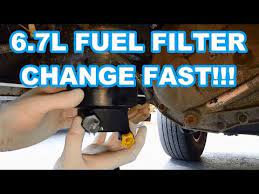Evaluating the Impact of a Bad Fuel Filter on Performance
Evaluating the Impact of a Bad Fuel Filter on Performance. The fuel filter is a critical component of a vehicle’s fuel system, responsible for ensuring that only clean fuel reaches the engine. A bad or clogged fuel filter can have a significant impact on the performance of a vehicle. This article aims to evaluate the effects of a bad fuel filter on the performance of a vehicle and the importance of regular maintenance to prevent such issues.
Effects of a Bad Fuel Filter on Performance:
- Reduced Fuel Efficiency: A clogged fuel filter can restrict the flow of fuel to the engine, leading to reduced fuel efficiency. The engine may have to work harder to compensate for the lack of fuel, resulting in increased fuel consumption.
- Engine Misfires: A bad fuel filter can cause engine misfires due to a lack of proper fuel delivery. This can result in rough idling, hesitation, and a loss of power while driving.
- Poor Acceleration: A clogged fuel filter can hinder the engine’s ability to receive an adequate amount of fuel, leading to poor acceleration and sluggish performance.
- Engine Stalling: In severe cases, a bad fuel filter can cause the engine to stall, especially at low speeds or when idling. This can be dangerous and inconvenient, especially in traffic or adverse weather conditions.
- Damage to Engine Components: A clogged fuel filter can allow contaminants and debris to pass through, potentially causing damage to other engine components such as fuel injectors and fuel pumps. This can result in costly repairs and reduced engine lifespan.
Importance of Regular Maintenance:
Regular maintenance of the fuel filter is essential to prevent these performance issues and ensure the smooth operation of the vehicle. It is recommended to replace the fuel filter at manufacturer-recommended intervals or if symptoms of a clogged filter are observed. Additionally, using quality fuel and fuel additives can help prevent the buildup of deposits and contaminants in the fuel filter.
Conclusion:
In conclusion, a bad fuel filter can have a significant impact on the performance of a vehicle, leading to reduced fuel efficiency, engine misfires, poor acceleration, engine stalling, and potential damage to engine components. Regular maintenance of the fuel filter is crucial to prevent these issues and ensure the optimal performance of the vehicle. By understanding the effects of a bad fuel filter and taking proactive measures to maintain it, vehicle owners can enjoy a smoother driving experience and avoid costly repairs.




Post Comment